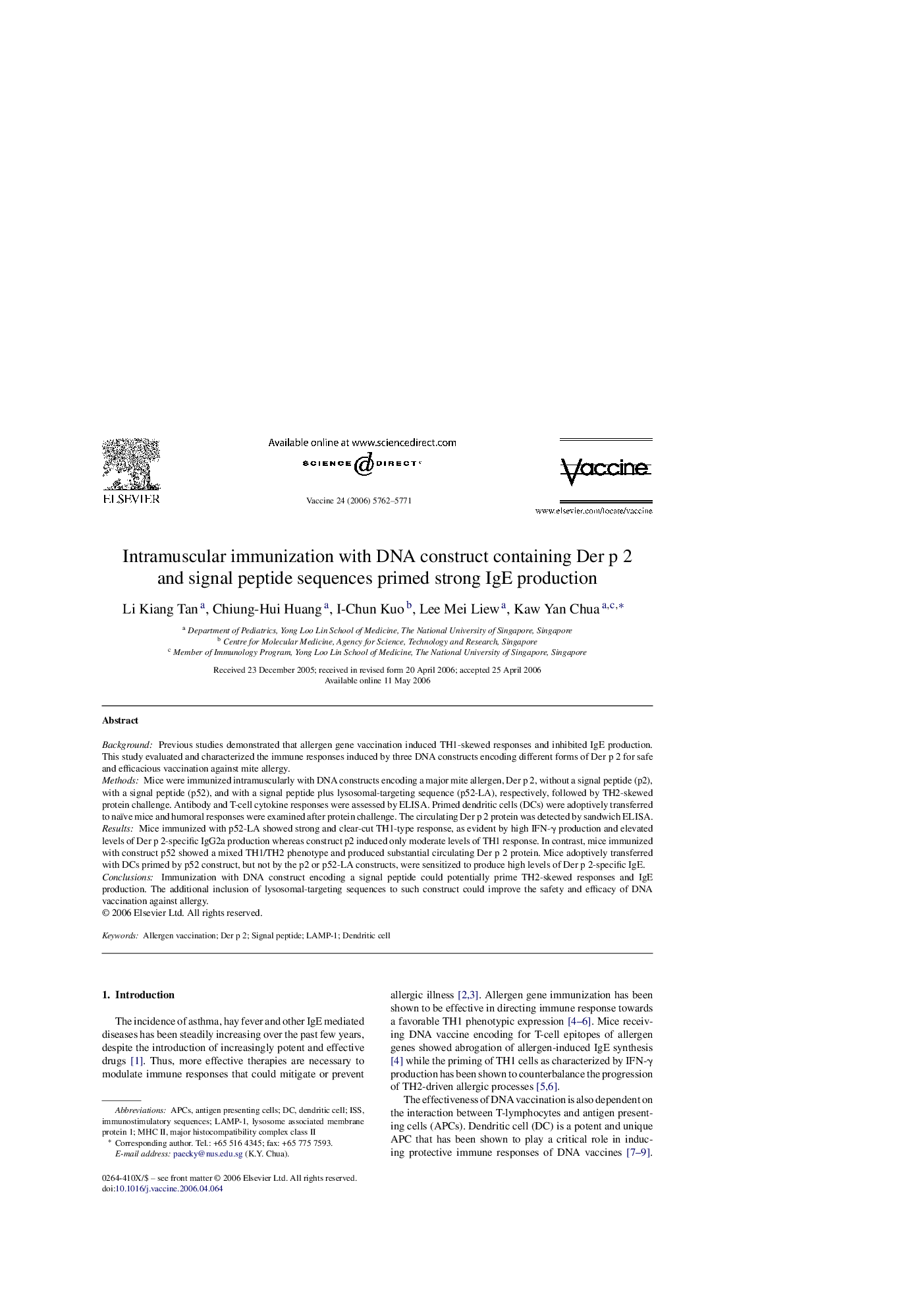| Article ID | Journal | Published Year | Pages | File Type |
|---|---|---|---|---|
| 2409007 | Vaccine | 2006 | 10 Pages |
BackgroundPrevious studies demonstrated that allergen gene vaccination induced TH1-skewed responses and inhibited IgE production. This study evaluated and characterized the immune responses induced by three DNA constructs encoding different forms of Der p 2 for safe and efficacious vaccination against mite allergy.MethodsMice were immunized intramuscularly with DNA constructs encoding a major mite allergen, Der p 2, without a signal peptide (p2), with a signal peptide (p52), and with a signal peptide plus lysosomal-targeting sequence (p52-LA), respectively, followed by TH2-skewed protein challenge. Antibody and T-cell cytokine responses were assessed by ELISA. Primed dendritic cells (DCs) were adoptively transferred to naïve mice and humoral responses were examined after protein challenge. The circulating Der p 2 protein was detected by sandwich ELISA.ResultsMice immunized with p52-LA showed strong and clear-cut TH1-type response, as evident by high IFN-γ production and elevated levels of Der p 2-specific IgG2a production whereas construct p2 induced only moderate levels of TH1 response. In contrast, mice immunized with construct p52 showed a mixed TH1/TH2 phenotype and produced substantial circulating Der p 2 protein. Mice adoptively transferred with DCs primed by p52 construct, but not by the p2 or p52-LA constructs, were sensitized to produce high levels of Der p 2-specific IgE.ConclusionsImmunization with DNA construct encoding a signal peptide could potentially prime TH2-skewed responses and IgE production. The additional inclusion of lysosomal-targeting sequences to such construct could improve the safety and efficacy of DNA vaccination against allergy.
